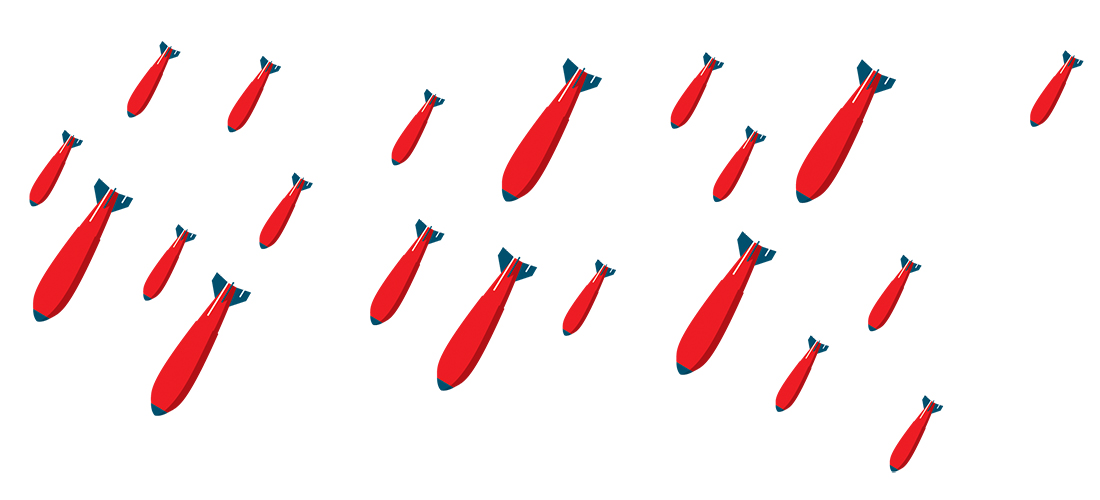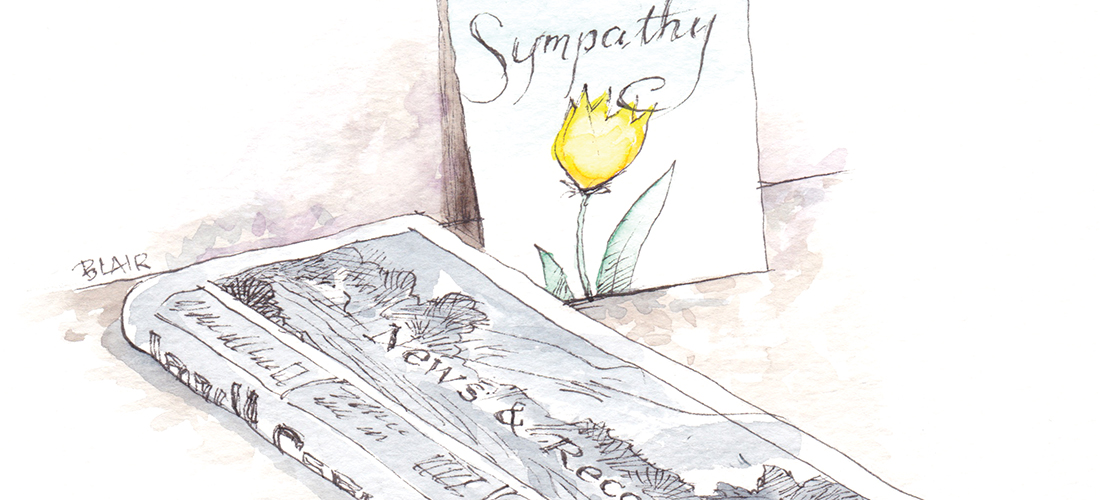Simple Life
What’s Enough?
Timeless advice from a modern sage
By Jim Dodson
A few weeks ago I read in The New Yorker about a group of Silicon Valley billionaires who’ve built luxury retreats in some of the remotest parts of the planet, safe houses designed to allow their owners to survive a global catastrophe — and stocked with enough good white wine and military hardware to hold out indefinitely.
A short time later, I read about a second group of young Silicon Valley billionaires funding a top-secret scheme to bioengineer a so-called “God Pill” that can cure everything from cancer to flat feet and make human mortality as obsolete as your trusty old Osborne computer.
According to Newsweek magazine, this latter group of “visionaries” includes Peter Thiel, the billionaire co-founder of PayPal, who is making plans to live for at least 120 years. Dmitry Itskov, the “godfather” of the Russian Internet, says his goal is to live to 10,000 years of age, while Larry Ellison, co-founder of Oracle, finds the notion of accepting mortality “incomprehensible.” Sergey Brin, co-founder of Google, meantime, simply hopes to someday “cure death.”
As Newsweek notes, “The human quest for immortality is both ancient and littered with catastrophic failures. Around 200 B.C., the first emperor of China, Qin Shi Huang, accidentally killed himself trying to live forever, poisoning himself by eating supposedly mortality-preventing mercury pills.”
Centuries later, the answer to eternal life appears no closer at hand. “In 1492, Pope Innocent VIII died after blood transfusions from three healthy boys whose youth he believed he could absorb. A little closer to modern times, in 1868 America, Kentucky politician Leonard Jones ran for the U.S. presidency on the platform that he’d achieved immortality through prayer and fasting — and could give his secrets for cheating death to the public. Later that year, Jones died of pneumonia.”
For better or worse, as the ancients of every spiritual tradition remind us, it is life’s bittersweet impermanence — and one’s perspective on the matter — that determines whether every day is regarded as a gift to be savored or a good reason to pack up and head for the hills.
As I read about Silicon Valley’s lavish End Time retreats and quest to make human mortality irrelevant, in any case, I couldn’t help but think about the summer I realized I was mortal and probably wouldn’t be around forever.
It was June of 1962 and school was just out. Third grade was in my rearview mirror and I had both a new neighborhood plus a shiny new Black Racer bike upon which to go adventuring.
My new neighborhood gang was buzzing about the bomb shelter “creepy Mr. Freeman” had reportedly built beneath a shed in his backyard in the raw new subdivision south of the city. The Russians were coming, and bomb shelters were all the rage on TV and in magazines. About this same time I watched an episode of The Twilight Zone that tells the story of neighbors at a dinner party when word comes that a nuclear missile has been launched at America. The host and his family flee to their bomb shelter only to have their terrified neighbors batter down the door — just as the word comes that the report was a mistake. But panic has brought its own devastation to the neighborhood.
I freely admit becoming obsessed with Mr. Freeman’s bomb shelter. My brother and I were sons of an itinerate newspaperman, after all, who’d witnessed Klan rallies and floods during our family odyssey through several newspapers across the deep South before coming home to Greensboro for good. There’d been stops in Wilmington and Florence, South Carolina, and our dad had even owned his own paper in Mississippi for a while. But the misfortunes and tragedies we’d witnessed or heard about in the context of newspaper reporting always belonged to someone else.
To my over-stimulated 9-year-old brain, the prospect of a sneaky, thermonuclear attack by the Russians was in a class of disaster by itself. It made the rickety wooden desks we practiced huddling beneath during civil defense drills at school seem laughably insufficient compared to the allure of an Oreo-filled, TV-equipped bomb shelter in one’s own backyard.
I even asked my dad if we could build one, helpfully providing a preliminary sketch of what ours might look like. My bomb shelter was one classy affair, resembling a cross between the Flintstones’ cave and a Jules Verne wondrous Nautilus submarine.
My old man smiled when I showed him my bomb shelter design, which also depicted a wasteland where our new subdivision previously existed — a cindered moonscape inspired by photographs of Hiroshima I’d seen in an Associated Press photo book of the Second World War.
“How many people can fit in your bomb shelter?” he casually wondered.
“Just the four of us and Herky,” I said. Herky was my dog, short for “Hercules,” named for the mythological Greek strongman featured in cheesy Steve Reeves movies.
“I see. Well, Sport, would you really want to live in a world like that? How are you going to feel knowing all your friends and schoolmates who didn’t have bomb shelters were left up top where everything is gone — all the birds and trees and animals you seem to love so much?”
This was a point I’d not considered.
“Do you think the world will end anytime soon?” I asked him.
“In some fashion or another, the world is always ending for someone somewhere,” he calmly explained.
He even had an answer to the nuclear appeal of creepy Mr. Freeman’s bomb shelter.
“You can’t run away from the world,” he said. “You can only try to improve it. Rather than bury yourself in the backyard, I suggest you grow up and help create a better world. You have a brief time on this Earth. The trick is to use it wisely — and to learn what’s enough.”
Decades later, when we talked about this funny moment, my philosopher-father remembered it almost exactly the way I did.
We happened to be sitting in a pub on the rainy Lancashire coast of England, sharing a pint following a rained-off round of golf. Though you wouldn’t have guessed it, my dad was dying of cancer, and this was our final golf trip together, a long-talked-about trip to see the places where he fell in love with golf as an Air Force sergeant just prior to D-Day.
Among other things on this trip, I’d learned that my father had been through his own versions of an Apocalypse — first a tragic plane crash that killed dozens of people including children in the village where he was stationed; and a second time when his dream of owning his own newspaper in Mississippi went up in smoke after his silent partner cleaned out the company bank accounts and headed for parts unknown. That same week, unimaginably, my mother suffered a late-term miscarriage and my dad’s only sister died in a car wreck outside Washington, D.C. Talk about the End of the World.
“How on Earth does one survive a week like that?” I asked him over my warm beer.
I remember how he smiled. “Because I’ve learned that it’s not what you get from this life that really matters — but what you give and leave behind. Knowing what’s enough is the key to a meaningful life.”
My dad was 79 years old that rainy afternoon in England. I could suddenly see why he was the perfect fellow to moderate the men’s Sunday morning discussion group at First Lutheran Church in Greensboro for more that two decades.
I was 42 years old with two small children back home in Maine and already in grief over his approaching absence from my life.
And I remember something else he said with a wry smile, draining his beer.
“There are no endings, Sport, only beginnings. Make each day count.”
Reading about the wealthy Silicon Valley billionaires who crave more time and seek to live forever simply reminded me of these lessons I learned very early in life, from that faraway bomb shelter summer and the mouth of a modern sage. Later in life, I actually took to calling my wise old father, an adman with a poet’s heart, “Opti the Mystic.”
All these years later, I think about how blessed I was to have such a funny, philosophical father and his essential message about knowing “What’s enough?”
Mine really is a pretty simple life, it turns out. I even jotted down a few things that at the end of the day (or even the world) are more than enough for me.
Enough for me is an old house I love where every creak or groan underfoot sounds like a sigh of contentment.
Long walks around Paris — or just the neighborhood at dawn or evening — with my wife, Wendy, is the stuff of everyday magic.
Ditto a Japanese garden that will probably take at least a decade more to complete, new friends who come to supper on weekends, old friends who get in touch, Sunday evening phone calls from our four grown children, good books, rainy Sundays, our screened porch, and the night skies over our terrace.
For the record, I’d like to write five or six more books of my own and maybe hobble off someday to find the world’s most sacred places, purely for spiritual kicks.
Also, like a worried 9-year-old boy I remember being, I wish my dog Mulligan could live forever — or at least until I’m ready to push on to God knows where.
Point being, I guess I don’t fear the end of this world, a gift Opti the Mystic gave me long ago.
“This is why we are in the world,” advised the Sufi mystic Bawa. “Within your heart is a space smaller even than an atom. There, dear ones, God has placed 18,000 universes.”
A good reason to make every day count. PS
Contact Editor Jim Dodson at jim@thepilot.com. Read more about Opti the Mystic and Mulligan in The Range Bucket List, Dodson’s new book, available everywhere.


